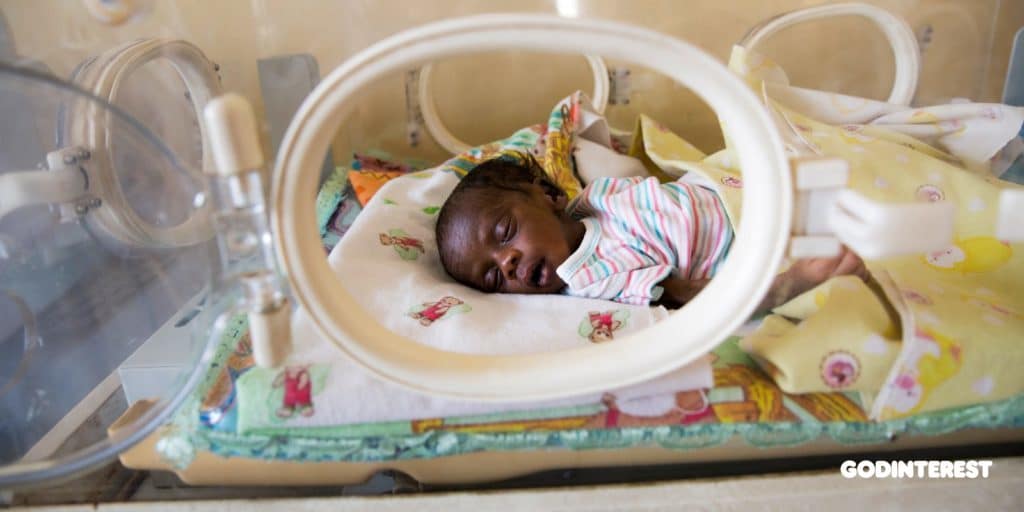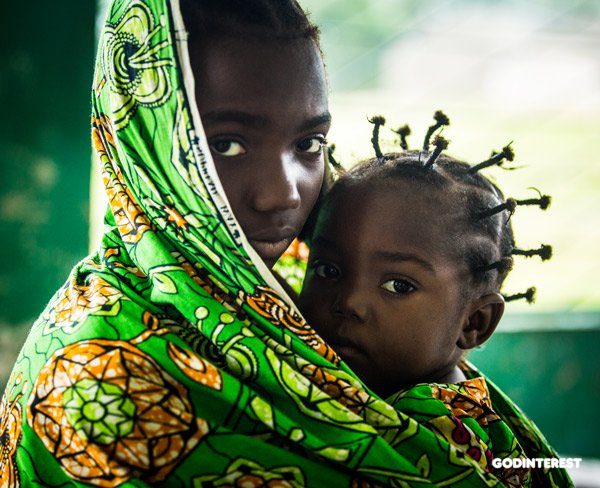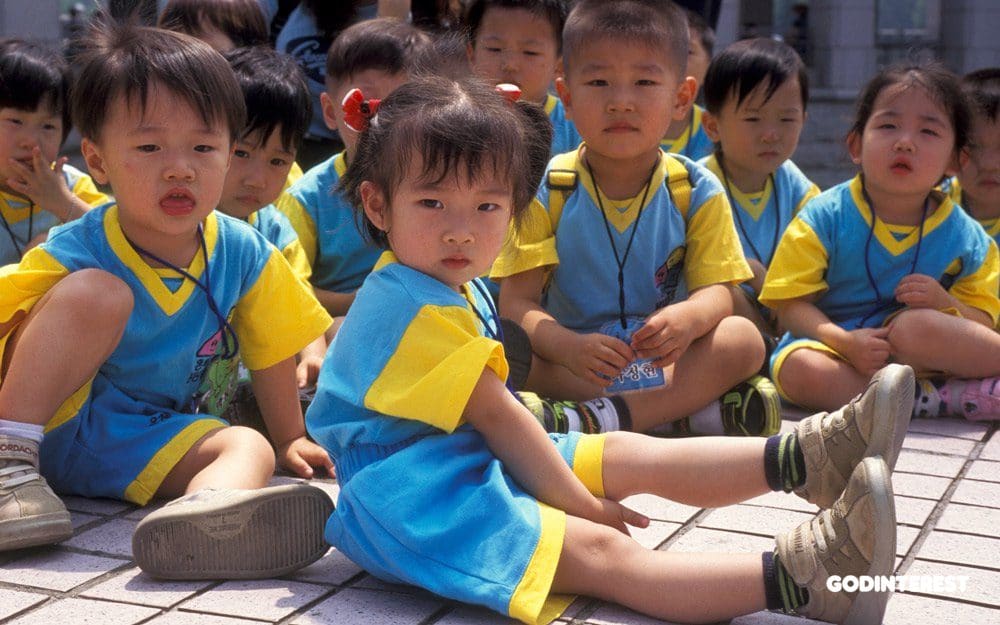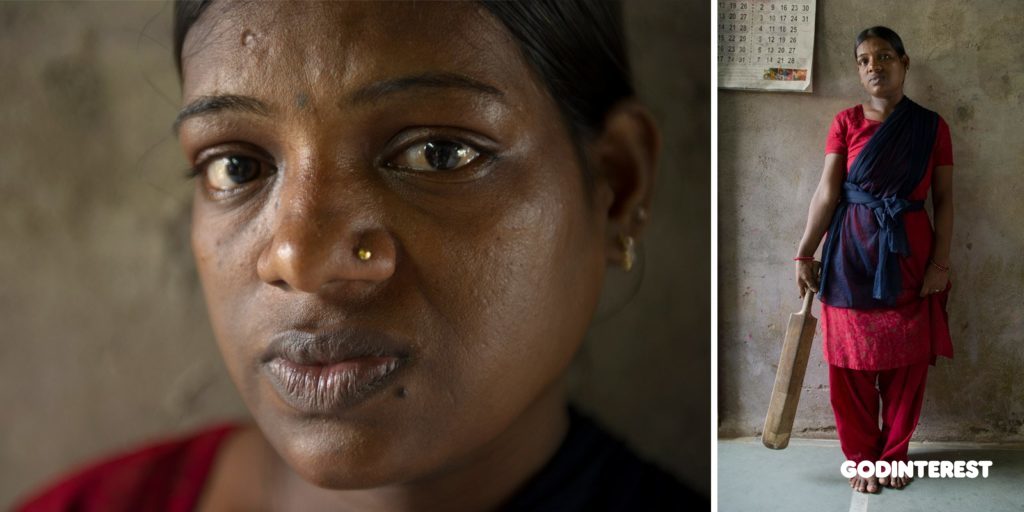WILLS POINT, TX — Gospel for Asia (GFA) Special Report on the aftermath of acute gender imbalance: Discussing the horrendous reality of 100 million missing women worldwide — Part 2.
Do You See This Woman?
Let’s summarize again that story from Luke that began this article, “And behold, a woman in the city who was a sinner ”¦ brought an alabaster flask of fragrant oil, and stood at His feet behind him weeping; and she began to wash His feet with her tears, and wiped them with the hair of her head; and she kissed His feet and anointed them with the fragrant oil.”
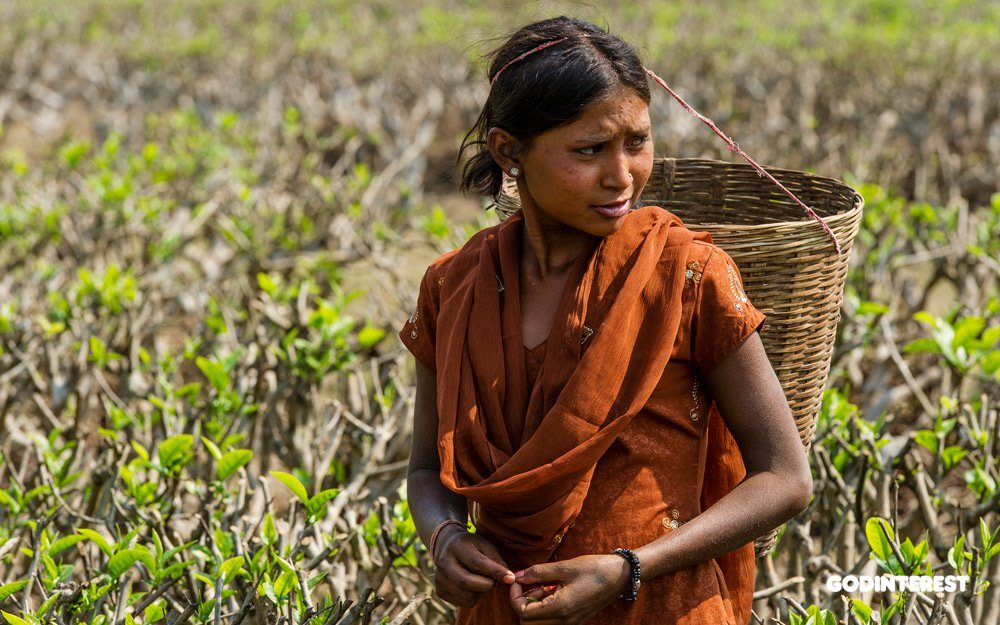 This young woman, Maloti, was kidnapped from the tea farm she worked on as a day laborer and recently married to someone of a higher caste. Her in-laws, disgusted by her being of a lower caste, hated her so much that they poisoned her. Their murderous attempt failed and Maloti survived, but suffered damage to her vocal cords.
This young woman, Maloti, was kidnapped from the tea farm she worked on as a day laborer and recently married to someone of a higher caste. Her in-laws, disgusted by her being of a lower caste, hated her so much that they poisoned her. Their murderous attempt failed and Maloti survived, but suffered damage to her vocal cords.
The important religious leader, a Pharisee named Simon, was appalled by this woman who, uninvited, crashed his dinner party. In his heart he thought Jesus could not possibly be who He said He was, or He would know what kind of woman she was. Simon certainly thought he knew what kind of woman she was–an emotional type, obviously; a town prostitute, probably. A woman of bad manners and of lower class, which was not his type of person, certainly.
Jesus tells a parable about two debtors, one who owed a creditor little and one who owed the same man much. Both of their debts were forgiven. Jesus asks his host, Simon, which one he thinks loved the creditor the most–the one with little debt forgiven or the one with much debt forgiven? The answer is obvious, even to those of us reading the story many years removed from the dinner-party incident. We agree with the Pharisee’s answer: the one who was forgiven much.
At the risk of being redundant, it is here that Christ asks the question that resounds through the centuries, one that should be considered by any hostile intimate partner and any theologian or churchgoer who has a twisted, mysogynized theology: “Simon, do you see this woman?”
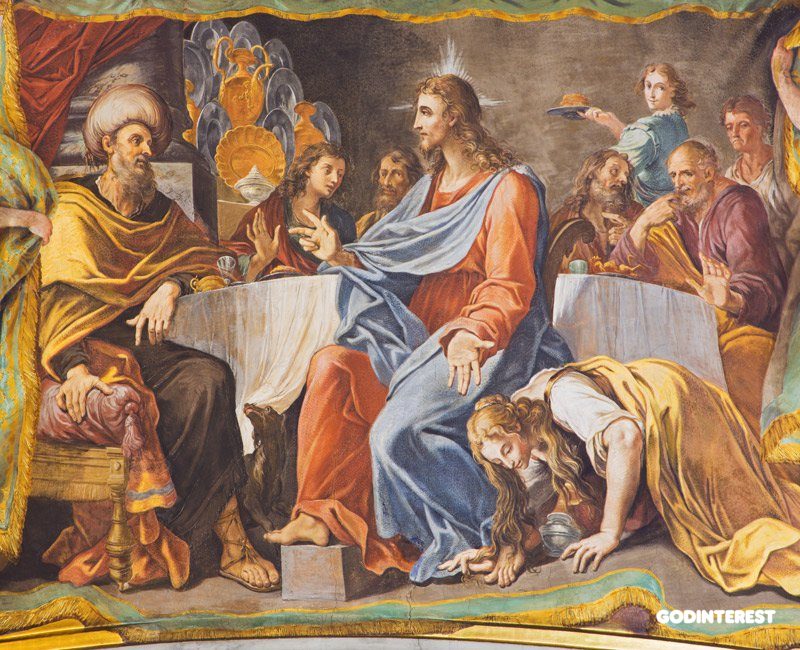 This photo tells a story from the book of Luke: An uninvited woman, seen as a sinner, a woman of lower class who wanted to wash a religious leader’s feet with her own tears. The owner of the house was appalled by her, but Jesus “saw this woman”, intervened and provided protection, illustrating how to advocate for those longing for forgiveness.Do you see this woman? Christ saw the woman, not her bad reputation, not her past misdeeds, not her wayward lifestyle. He saw her best potential self. He saw her broken heart. He saw the gratefulness she felt that any man could think she was something other than the role the community had assigned to her.
This photo tells a story from the book of Luke: An uninvited woman, seen as a sinner, a woman of lower class who wanted to wash a religious leader’s feet with her own tears. The owner of the house was appalled by her, but Jesus “saw this woman”, intervened and provided protection, illustrating how to advocate for those longing for forgiveness.Do you see this woman? Christ saw the woman, not her bad reputation, not her past misdeeds, not her wayward lifestyle. He saw her best potential self. He saw her broken heart. He saw the gratefulness she felt that any man could think she was something other than the role the community had assigned to her.
Jesus saw the women. If you want to conduct a study as to Jesus’ attitude toward women in a time when they were considered lower than second class, look through the stories collected in the Gospel of Luke. Here we see a man who loved women, advocated for them, healed them and welcomed them as companions in His earthly ministry.
We, too, need to see the women of the world. We need to turn our energies toward helping countries change and cure the great harms that have contributed to the extraordinary demographic imbalance of some 110 males for every 100 women. Indeed, many developing countries consider elevating women from underclass to an educated class as a means of increasing the capacity of the country to function competitively in a global economy.
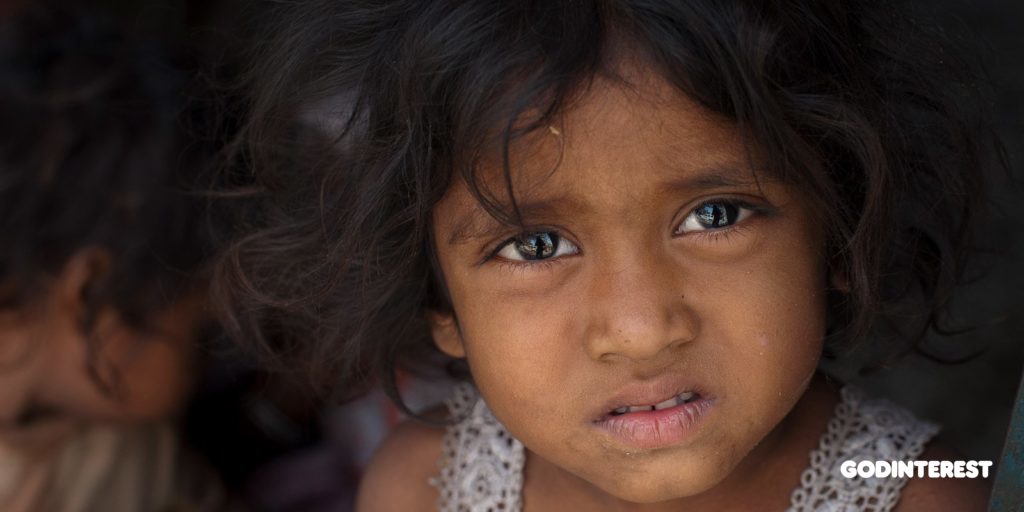 This little girl, along with thousands of other children, lives in the slums of Delhi. She–and the children like her–lack access to education, nutritious food and health care facilities, to name the least. They begin working at a very young age picking up trash or working for small workshops to earn wages to provide for themselves.
This little girl, along with thousands of other children, lives in the slums of Delhi. She–and the children like her–lack access to education, nutritious food and health care facilities, to name the least. They begin working at a very young age picking up trash or working for small workshops to earn wages to provide for themselves.
A Consensual Solidarity of Concern
Let us grieve for these who have suffered such hardships, deprivation, bondage, violence, societal disfavor or low self-esteem brought on by the scornful esteem of the men in one’s social circle. Let us form a solidarity of concern and do what we can to change the capacity of others, either men or women, but for the purposes of this article, particularly women.
In 1980, I went on a sponsored survey trip for Food for the Hungry to write about that organization’s work in the disaster areas of the world. It was an extraordinary global journey and an extraordinary exposure to the needs and crises of humanity worldwide as well. At the start of the trip, on April 1 in Hong Kong, I had time to do a study of Christ’s ministry as recorded in the Gospel of Matthew, and I wrote out all the verses to remind myself of how dramatic His healing, teaching and miracle-filled ministry must have been to the masses.
Something about Christ’s response to the needy women who were part of all those crowds touched me deeply, and I wrote:
Lord, I praise You that while You are also God of the individual, You are also God of the masses. What did you have in mind for me to write about these masses of women?
- Those who with little household aids, nevertheless, keep their houses (huts or tents) clean?
- Those who demonstrate industry weaving or knitting?
- Those who work in gardens, hoeing with homemade instruments or digging in the soil with sharpened sticks?
- Those who run sidewalk cafés–little set-up carts?
- Those who pour cool drips of the water they have walked miles to gather over the bodies of their sweaty and dirty children?
- Those who are painstakingly learning English in order to better themselves with foreigners?
- Those who are raising pigs in piggeries?
- Those in refugee camps who have nothing profitable to do afternoon after afternoon after afternoon?
- Those who have willingly offered me their babies because the past is horrendous, their husbands are no longer alive and the future looks hopeless?
- Those with wholesome, plain faces who volunteer their lives to serve the missionaries who bring some sensibility of promise into nonsensical and unpromising conditions?
- Those who plant flowers in front of their settlement housing (canvas tents or ramshackle shelters)?
There is something about actually seeing the masses of needy and desperate yet often-courageous women struggling just to survive in the resettlement housing in Hong Kong, in the refugee camps in Thailand (those fleeing the Pol Pot massacres in Cambodia), in the canvas villages with dirt paths, in the milk-and-food lines provided by development organizations, or in the old abandoned ammo depots now housing a population of 20,000.
A Little Girl’s Future Transformed
A beautiful story from Gospel for Asia’s archives tells about the day a cook at a GFA-supported Bridge of Hope center noticed an elderly woman begging on the street. The cook was distressed because the older woman had a little girl, filthy and dressed in rags, in tow.
Knowing that adult beggars will often use children as bait to receive monies, then pocket the funds and do nothing for the child, the cook challenged the older woman, “Why are you exploiting this child?”
To the cook’s surprise, the older woman broke into tears and wept.
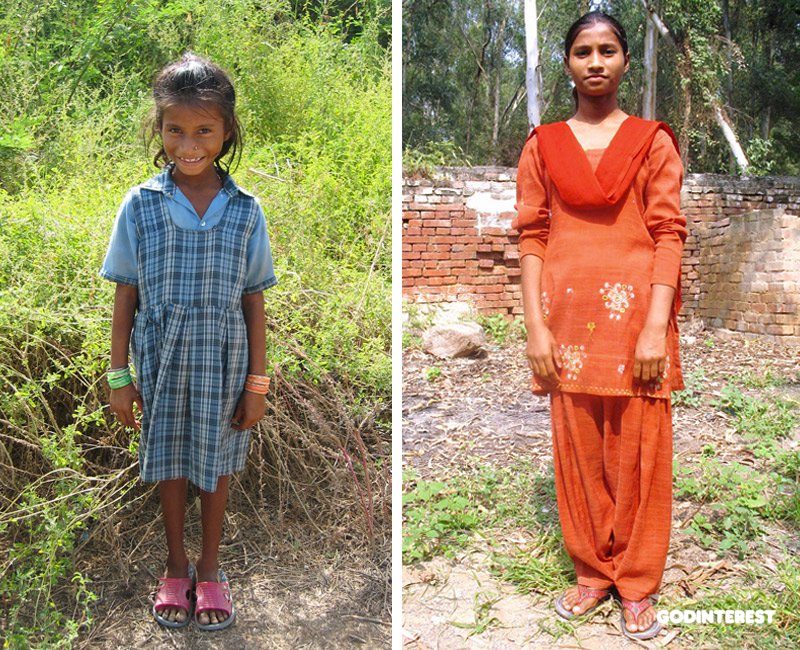 Daya, pictured at age 8 and age 15. Once among beggars in the street, she is now a thriving teen finding her place in this world and walking in her faith.She wasn’t a professional beggar at all, but the grandmother of the little girl, Daya, who had been abandoned by both her mother and father. Without income and desperate, the grandmother had begun begging at bus stops, train stations and on the streets. With a change of heart, the cook invited the grandmother to enroll Daya in the Bridge of Hope center, which was in a building wedged between a railway station and a slum, conveniently available to children without a future.
Daya, pictured at age 8 and age 15. Once among beggars in the street, she is now a thriving teen finding her place in this world and walking in her faith.She wasn’t a professional beggar at all, but the grandmother of the little girl, Daya, who had been abandoned by both her mother and father. Without income and desperate, the grandmother had begun begging at bus stops, train stations and on the streets. With a change of heart, the cook invited the grandmother to enroll Daya in the Bridge of Hope center, which was in a building wedged between a railway station and a slum, conveniently available to children without a future.
The little girl was enrolled in the center but was so filthy that other parents complained. The Bridge of Hope staff conducted an intensive scrub session to relieve the child of dirt and germs and to replace the same filthy clothes she wore each day with clean clothes. They introduced her to soap and taught her to use it when she washed.
As the report states, “Daya’s future hung in the balance. If rejected from the Bridge of Hope center, she would return to the streets as one of the hundreds of thousands of child beggars in Asia. At some point, she would likely join the 20 to 30 million other boys and girls who are exploited as child laborers.”
The staff was determined to see that Daya thrived in Bridge of Hope, and she grew up to be an educated young woman. However, millions of other children never get that chance.
 These are the hands of a child, covered in filth from doing construction work. Thousands of children, just like this one, can’t go to school because they are caught in bonded labor. Some 31 million girls of primary-school age are not in school. Seventeen million of these are expected to never enter school.
These are the hands of a child, covered in filth from doing construction work. Thousands of children, just like this one, can’t go to school because they are caught in bonded labor. Some 31 million girls of primary-school age are not in school. Seventeen million of these are expected to never enter school.
Child Exploitation
In a fact sheet on girls’ education, UNESCO (United Nations Educational, Scientific and Cultural Organization) explains:
- Some 31 million girls of primary-school age are not in school. Seventeen million of these are expected to never enter school.
- Some 34 million female adolescents are missing from secondary schools, which often offer vocational skills that are essential for procuring future jobs.
- Two-thirds of the 774 million illiterate people in the world are female.
Thousands of these children can’t go to school because they are caught in bonded labor.
“It is doubtful they’ve ever held a toothbrush or a bar of soap; they’ve probably never eaten an ice-cream cone or cradled a doll,” GFA states. “The child laborers of Asia toil in fireworks, carpet and match factories; quarries and coal mines; rice fields, tea plantations and pastures; and even brothels. Because they are exposed to dust, toxic fumes, pesticides and disease, their health is compromised, and their bodies can be crippled from carrying heavy weights.”
Worse still, these children could be entrapped in prostitution.
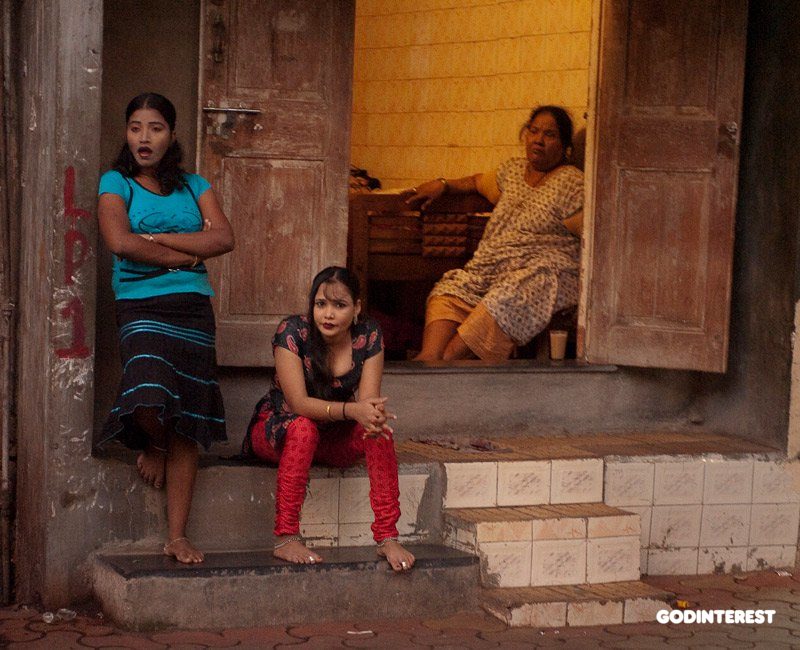 These young women are prostitutes in the red-light district; some most likely entrapped since childhood.
These young women are prostitutes in the red-light district; some most likely entrapped since childhood.
According to Reuters, “Of an estimated 20 million commercial prostitutes in India, 16 million women and girls are victims of sex trafficking, according to [data gatherers].”
Prostitution is not illegal in India so the chances of victimization are mind-blowing. In addition, many impoverished families sell their daughters to opportunists who promise a better life for their children.
ABC News reports, “Aid organizations estimate that 20 to 65 million Indians have already passed through the hands of human traffickers at one point in their lives. Ninety percent of them remain within India’s national borders, and the majority are female and under the age of 18.”
One social worker, Palavi, explained, “Human trafficking works because the victims are afraid and cannot communicate. ”¦ Many of them have children who live in constant danger of also being sold or sexually abused. They grow up under the beds where their mothers were robbed of their dignity.”
When census data is gathered, these women, mothers and little girls are not in their villages, local communities or urban settlements. They are hidden by sex slave traders (but made available to the men who seek them out).
Let me ask again the question Jesus asked Simon the Pharisee, “Do you see this woman (or child, or little girl or teenager)?”
I have a granddaughter named Eliana who is 10 years old. Four mornings a week, I pick up Eliana and her brother, Nehemiah (8), to drive them to school. Their younger sister, Anelise (5), is picked up by the preschool bus. My driving effort is to help out their mother, who was married to our son Jeremy Mains. Our son, her husband and the children’s father, died five years ago at age 42 of blastic mantle cell lymphoma.
Angela, my daughter-in-law, is raising the children by herself while holding a full-time job as the director of a local community-outreach organization. She has just completed her dissertation and received a doctorate in adult education. Nevertheless, even with remarkable mothers, studies show that children raised without fathers are vulnerable. So my husband and I live close, are on call when babysitters fall through and try to do a lot of one-on-ones with our grandchildren.
Though I watch these grandchildren grow with an attentive heart, I am certain my granddaughter Eliana will never worry about entering bonded labor or be forced to go begging on the streets. It is impossible for me, even for the sake of achieving a frightening empathy, to impose through my imagination the horror of the lives of some 20 to 65 million trafficked females on these precious little girls I love.
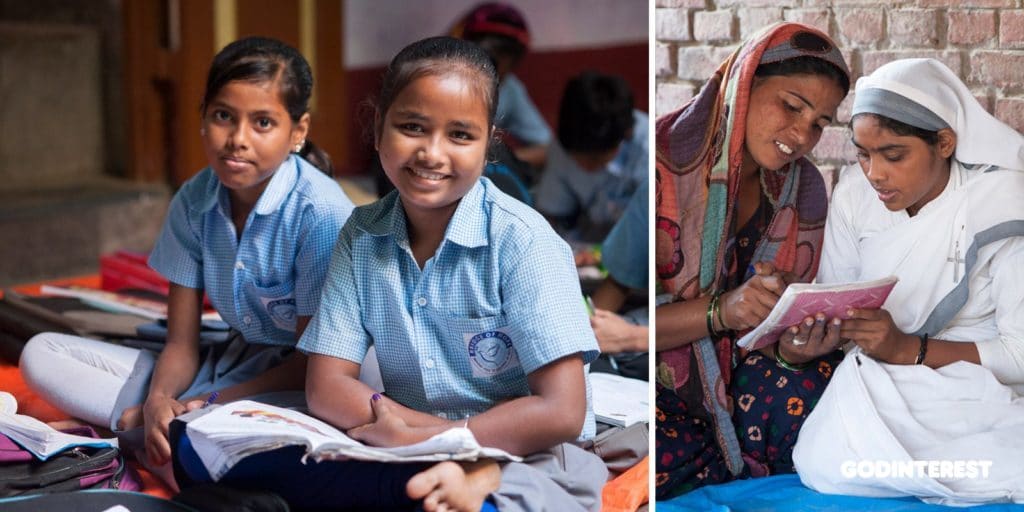 These Bridge of Hope students look happy during class time at GFA’s Bridge of Hope program. Education can protect a girl from exploitation–and redirect her future. This is a primary solution to begin changing the statistics of 100 million missing women.
These Bridge of Hope students look happy during class time at GFA’s Bridge of Hope program. Education can protect a girl from exploitation–and redirect her future. This is a primary solution to begin changing the statistics of 100 million missing women.
Education as a Deterrent
Education can protect a girl from exploitation–and redirect her future. An educated girl can read. She can find work. She can get training to become a teacher, a doctor or a policewoman, for instance. She can tutor other children. A social system begins to change slowly, very slowly, one educated girl by one educated girl.
The latest statistics regarding GFA’s supported work with women in 2018 include:

Educating girls is a primary solution to begin changing the statistics of 100 million missing women. The Global Partnership for Education maintains, “The power of girls’ education on national economic growth is undeniable: a one percentage point increase in female education raises the average gross domestic product (GDP) by 0.3 percentage points and raises annual GDP growth rates by 0.2 percentage points.”
The World Bank stresses that girls’ education goes beyond getting into school. It is also about ensuring they learn and feel safe in school. One research study in Haiti indicated, “One in three Haitian women (ages 15 to 49) has experienced physical and/or sexual violence, and that of women who received money for sex before turning 18 years old, 27 percent reported schools to be the most common location for solicitation.”
Through Bridge of Hope, GFA offers child sponsorships for the neediest impoverished children whose families are caught in the cycle of poverty and are unable to provide education for their offspring. The sponsorship amount is $35 per month per child. This educational ministry sees that some 70,000 children (both boys and girls) are given a daily meal, regular medical checkups and training in basic hygiene.
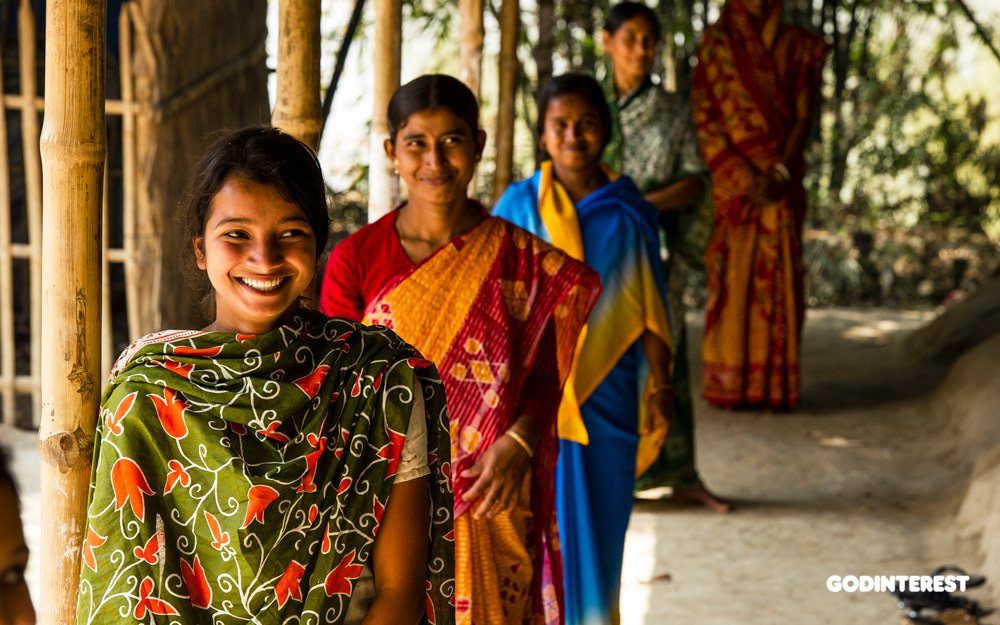
What Can We Do?
What can we–those of us who have hearts that beat with concern about the unbelievable evils of this world–do about the women worldwide who face discrimination and violence? How can anyone make a dent in a problem with such magnified proportionality? How can that horrific statistic–100 million missing women–be conquered, overcome, defeated, reduced or even eliminated?
Well, there are some things we can do, small as they seem, but mighty nevertheless in their possibility:
 We can sponsor girls (and boys) so they get educated through programs like GFA’s Bridge of Hope Program. And if $35 a month is too much for you (and it is for some compassionate people), invite your small group, Sunday School class, men’s softball league, neighborhood coffee-klatch or members of your extended family to pool funds.
We can sponsor girls (and boys) so they get educated through programs like GFA’s Bridge of Hope Program. And if $35 a month is too much for you (and it is for some compassionate people), invite your small group, Sunday School class, men’s softball league, neighborhood coffee-klatch or members of your extended family to pool funds.
 Think about this question: Why do more people not see this inequality and neglect, not grieve for the women and girls who have experienced such hardships and take action to be part of the solution? Then read the book of Luke and think about the societal shift that begins with women’s encounters with Jesus.
Think about this question: Why do more people not see this inequality and neglect, not grieve for the women and girls who have experienced such hardships and take action to be part of the solution? Then read the book of Luke and think about the societal shift that begins with women’s encounters with Jesus.
 Remind yourself of Christ’s question: “Do you see this woman?” Write it out on a card, and then use it as a bookmark in the books you read or paste it on your bathroom mirror. Write out a prayer, like the one I included in the beginning of this article, but adapt it to this horrific dilemma: Lord, what do You want me to do about the masses of women?And if you are not a praying person, send some discontented energy into the atmosphere any way you feel fit. Just don’t forget.
Remind yourself of Christ’s question: “Do you see this woman?” Write it out on a card, and then use it as a bookmark in the books you read or paste it on your bathroom mirror. Write out a prayer, like the one I included in the beginning of this article, but adapt it to this horrific dilemma: Lord, what do You want me to do about the masses of women?And if you are not a praying person, send some discontented energy into the atmosphere any way you feel fit. Just don’t forget.
Let us conclude by going back to Jesus, except now He is not eating at the table of the VIPs. He is bloody, tortured, hanging from a cross and nearing death. The Gospel of John describes the inhumanity of the Roman soldiers and the crowds standing beneath the cross.
“Now there stood by the cross of Jesus His mother, and His mother’s sister, Mary the wife of Clopas, and Mary Magdalene. When Jesus therefore saw His mother, and the disciple whom He loved standing by, He said to His mother, ‘Woman, behold your son!’ Then He said to the disciple, ‘Behold your mother!’ And from that hour the disciple took her to his own home.” [28]
Concern for the widow. Concern for the women.
“Look at this woman. Do you now see your mother?”
So, let us also be about this work in the world.
Oh, Lord, help us to care for every human with hearts that beat like Your heart beats for them. And help us, please help us, no matter our gender, to see the women.
100 Million Missing Women & the Aftermath of Acute Gender Imbalance: Part 1
Learn more about Gospel for Asia’s programs to combat the Missing Women reality by helping women through Vocational Training, Sewing Machines and Literacy Training.
This Special Report article originally appeared on GFA.org.
Go here to know more about Gospel for Asia: Facebook | Sourcewatch | Integrity | Flickr | GFA | Lawsuit






















 We can sponsor girls (and boys) so they get educated through programs like GFA’s Bridge of Hope Program. And if $35 a month is too much for you (and it is for some compassionate people), invite your small group, Sunday School class, men’s softball league, neighborhood coffee-klatch or members of your extended family to pool funds.
We can sponsor girls (and boys) so they get educated through programs like GFA’s Bridge of Hope Program. And if $35 a month is too much for you (and it is for some compassionate people), invite your small group, Sunday School class, men’s softball league, neighborhood coffee-klatch or members of your extended family to pool funds. Think about this question: Why do more people not see this inequality and neglect, not grieve for the women and girls who have experienced such hardships and take action to be part of the solution? Then read the book of Luke and think about the societal shift that begins with women’s encounters with Jesus.
Think about this question: Why do more people not see this inequality and neglect, not grieve for the women and girls who have experienced such hardships and take action to be part of the solution? Then read the book of Luke and think about the societal shift that begins with women’s encounters with Jesus. Remind yourself of Christ’s question: “Do you see this woman?” Write it out on a card, and then use it as a bookmark in the books you read or paste it on your bathroom mirror. Write out a prayer, like the one I included in the beginning of this article, but adapt it to this horrific dilemma: Lord, what do You want me to do about the masses of women?And if you are not a praying person, send some discontented energy into the atmosphere any way you feel fit. Just don’t forget.
Remind yourself of Christ’s question: “Do you see this woman?” Write it out on a card, and then use it as a bookmark in the books you read or paste it on your bathroom mirror. Write out a prayer, like the one I included in the beginning of this article, but adapt it to this horrific dilemma: Lord, what do You want me to do about the masses of women?And if you are not a praying person, send some discontented energy into the atmosphere any way you feel fit. Just don’t forget.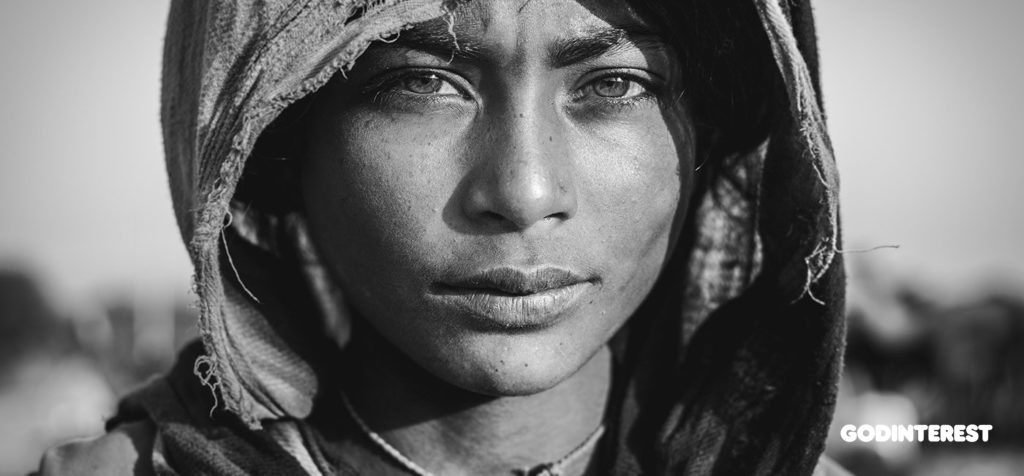
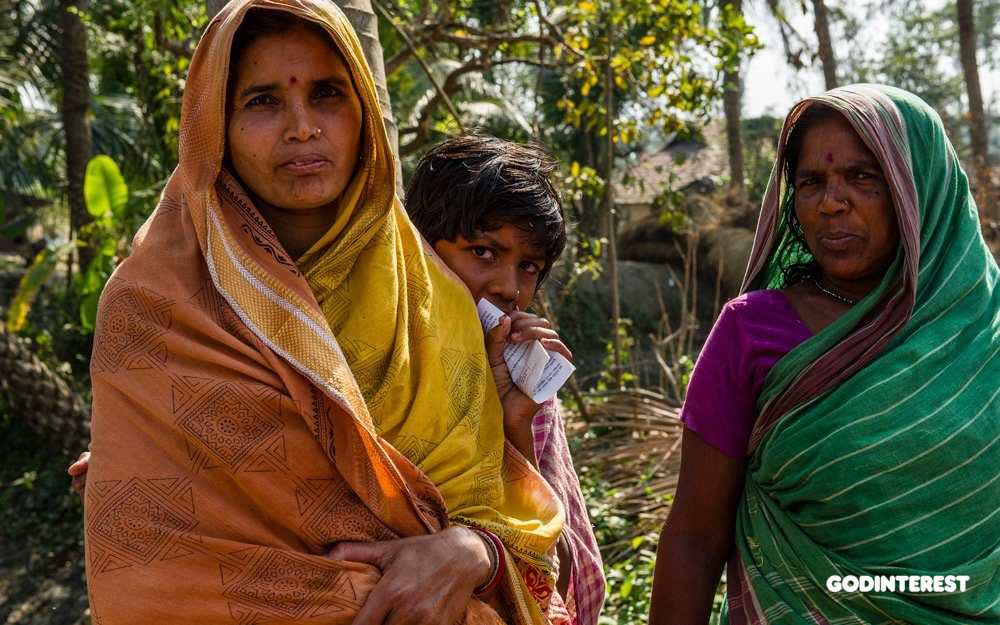
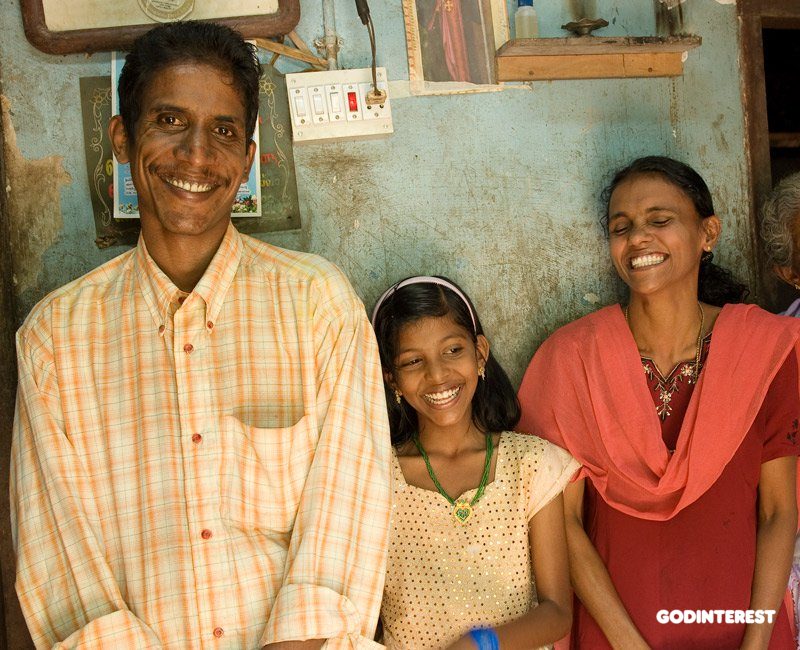
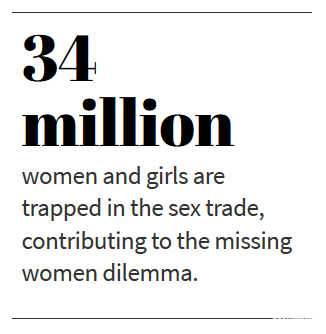 There is now a general consensus as to the reasons why sex ratios are teetering on a wild gender imbalance in various countries of the world. Sex-selective abortions, female infanticide, inadequate health care and nutrition for female offspring, lack of pregnancy and childbirth education, and the now booming sex-slave trade industry all contribute to the missing women dilemma.
There is now a general consensus as to the reasons why sex ratios are teetering on a wild gender imbalance in various countries of the world. Sex-selective abortions, female infanticide, inadequate health care and nutrition for female offspring, lack of pregnancy and childbirth education, and the now booming sex-slave trade industry all contribute to the missing women dilemma.